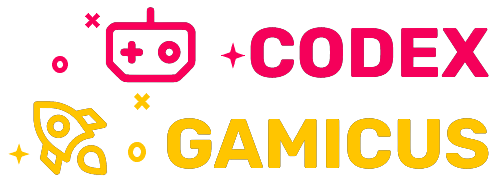DuckTales is a video game based on the Disney animated TV series of the same name. It was first released in the United States for the Nintendo Entertainment System by Capcom in 1989. In this game, Scrooge McDuck travels around the world collecting treasures to become the world's richest duck. The game was later ported to Game Boy. This game is unrelated to DuckTales: The Quest for Gold, which was released on a variety of personal computers in the early 1990s.
DuckTales is often a subject of NES-related nostalgia and was generally popular. The game provides a good example of the work produced by Capcom in the late 1980s and early 1990s, along with such titles as those in the Mega Man franchise; both shared key personnel such as Tokuro Fujiwara, Keiji Inafune and Yoshihiro Sakaguchi. DuckTales has much in common with the Mega Man games: bright and colorful graphics, tight play control with unique gameplay dynamics (such as using Scrooge's cane as a weapon, tool, and pogo stick), and non-linear gameplay.
Gameplay[ | ]
The player controls Scrooge McDuck throughout the entire game, searching for treasures to become the world's richest duck. Scrooge can jump using the A button; his cane is used as a weapon to defeat enemies or strike objects (B button) and as a pogo stick to jump higher (A then B + Down). There is a wide variety of helpful non-player characters and enemy characters.
DuckTales comprises five levels that can be played in any order. A boss guards the treasure that Scrooge seeks at the end of each level. There are also two hidden treasures: a golden ring in the African Mines level and a golden mirror in the Moon level. Upon finishing all five levels, the player is directed back to Transylvania for the final boss fight. DuckTales contains some non-linear gameplay, in that the player can revisit levels to get items that unlock parts of other levels.
Story[ | ]
Scrooge McDuck goes on a search for treasure, trying to become the world's richest duck. The game features alternate endings, which are determined by how much money the player collects during the game.
Development[ | ]
Ducktales was developed and published by Capcom. There were many differences between the beta version of the game and the final release. Many of these differences were seen in the 1990 book Consumer Guide: Hot Tips for the Coolest Nintendo Games. The levels went by different names: Jungle, Ghost House, Underground, Snow Mountain, and Moon Surface. Hamburgers were featured as a powerup instead of ice cream. The coffins in the Ghost House had crosses etched on them instead of R.I.P.(although the "NES Atlas" Player's Guide released by Nintendo retained the crosses in its stage maps) The Moon music had a much slower tempo, and the Ghost House had a completely different track. Also GizmoDuck went by his Japanese name "RoboDuck".
DuckTales was also known as La Bande à Picsou in the French NES version, after the popular TV program of the same name (the French version of the DuckTales cartoon). The Japanese Famicom release of the game was titled わんぱくダック夢冒険 (Wanpaku Dakku Yume Bōken, Naughty Ducks' Dream Adventure?). The Japanese version of the game did not feature the censorship present in the western releases of the game. DuckTales was later ported to the Game Boy. That version features the same gameplay, music and levels with different sound and graphics. The layouts of the levels were changed slightly due to the lower screen resolution. A sequel, DuckTales 2, followed in 1993. It didn't match the success or popularity of its predecessor, as consumers were focusing on the 16-bit consoles by that time.
Reception[ | ]
DuckTales was released to generally good reviews, praised for its gameplay and soundtrack, which was composed by veteran Capcom composer Yoshihiro Sakaguchi (a.k.a. Yuukichan's Papa). Of particular importance is the "Moon" stage theme, which has since become one of the iconic tunes of the late 8bit era. The graphics were considered above average for the time. The characters were part of a popular Disney franchise and were easily recognizable. The game is considered a classic among many NES enthusiasts. Nintendo Power listed it as the 13th best Nintendo Entertainment System video games, praising it as fun in spite of being a licensed video game. The game was also a commercial success, as Capcom cites the game as having sold 1.67 million copies worldwide.
Gallery[ | ]





